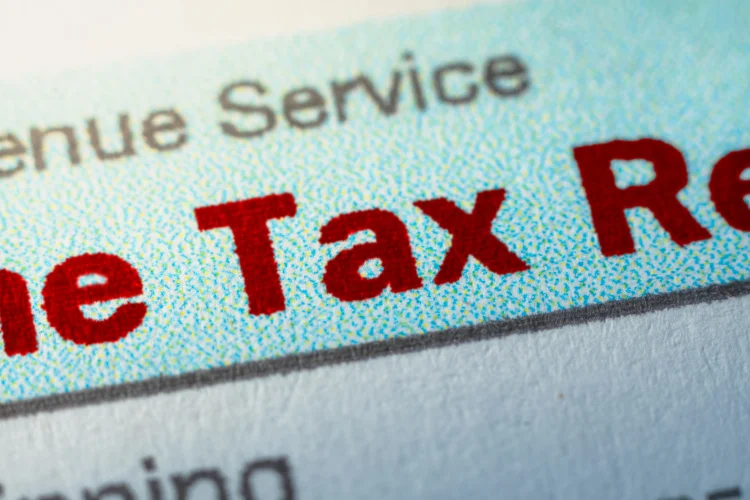Commerce Tax in Nevada: How It Affects Your Business
Updated time: May 28, 2025, 19:29 (UTC-08:00)
Nevada is widely known as a tax-friendly state there’s no personal income tax and no corporate income tax. While Nevada does not impose a traditional corporate income tax, it levies other forms of business taxation, including the Commerce Tax and Modified Business Tax. If your company generates a high level of revenue in the state, chances are you’ll need to deal with the commerce tax in Nevada.
This article breaks down everything business owners need to know about this important state tax. You’ll learn how the commerce tax works, which rates apply to your business, when it’s due, how to file, and what deductions may reduce your tax burden.
Whether you’re just starting out or already managing a high-growth company in Nevada, this guide will help you stay compliant and avoid unexpected penalties.
What Is the Commerce Tax in Nevada?
The commerce tax in Nevada is a gross receipts tax, meaning it’s based on your company’s total revenue rather than profit. It applies to business entities with Nevada gross revenue exceeding $4 million in a fiscal year (from July 1 to June 30). This includes LLCs, corporations, partnerships, and sole proprietors that operate in Nevada.
The tax is designed to ensure that large-revenue businesses contribute to the state budget, even in the absence of a traditional income tax.

Definition of Commerce Tax in Nevada
Who Must Pay the Nevada Commerce Tax?
Your business must pay the commerce tax if:
- It is engaged in business in Nevada, and
- It earns over $4 million in gross revenue attributable to Nevada in a single fiscal year.
If your revenue is below the threshold, you're not liable to pay the tax, but you may still need to file a return, depending on your circumstances.
It’s important to track your Nevada-source revenue carefully. Businesses with out-of-state operations must only count gross receipts tied directly to Nevada.
Nevada Commerce Tax Rate: How It's Calculated
The Nevada commerce tax rate is not uniform. Instead, the state uses an industry-based tax rate structure, meaning your rate depends on the primary industry in which your business operates.
There are more than two dozen business categories, and each has its own assigned tax rate. Here are a few examples:
| Industry | Tax Rate |
| Retail Trade | 0.111% |
| Manufacturing | 0.091% |
| Construction | 0.083% |
| Real Estate and Rental Leasing | 0.250% |
| Accommodation and Food Services | 0.200% |
| Healthcare and Social Assistance | 0.190% |
| Finance and Insurance | 0.111% |
To calculate your tax, subtract $4 million from your Nevada gross revenue. Then, apply the Nevada commerce tax rate for your industry classification to the remaining amount.
Example: A business classified as "Retail Trade" with $6 million in Nevada gross revenue would pay 0.111% on the $2 million over the threshold, resulting in a tax of $2,220.
Choosing the correct industry classification is critical, especially for businesses that span multiple sectors. You should consult an accountant or tax attorney to select the correct industry code.

Calculate Nevada Commercial Tax Rate
Nevada Commerce Tax Due Date
Every business subject to the commerce tax must file an annual return. The Nevada commerce tax due date is:
- August 14, following the end of the fiscal year (which runs from July 1 to June 30).
For example, the fiscal year ending June 30, 2024, has a filing deadline of August 14, 2024.
Even if your business qualifies for an exemption due to low revenue, it’s still advisable to file a “zero return” to remain in good standing.
Late filings are subject to penalties, interest, and enforcement actions, so it’s best to prepare and submit early.
Nevada Commerce Tax Filing Requirements
Here’s what you need to know about Nevada commerce tax filing requirements:
1. Register with the Nevada Department of Taxation
If your business is new or hasn't filed before, you must first register through the Nevada Tax Centre (tax.nv.gov). Registration enables you to file returns, make payments, and manage tax accounts online.
2. Prepare Your Gross Revenue Calculation
Your return must reflect the total gross revenue from Nevada sources, even if the tax is ultimately zero. Gross receipts include sales, fees, commissions, and other business income.
3. File the Annual Return
You must file the Commerce Tax Return electronically unless you’ve been authorized to submit a paper return. The return includes:
- Business information
- Industry classification code
- Nevada-source gross revenue
- Applicable deductions
- Tax rate and final tax due
If your revenue exceeds $4 million, you must submit payment along with your return.
Additionally, your business operates in multiple states, and determining Nevada-source revenue may involve complex apportionment rules. Consulting a tax professional is strongly recommended.

Requirements for filing Nevada commercial taxes
Nevada Commerce Tax Deductions and Credits
While the commerce tax is based on gross revenue, Nevada allows certain deductions and credits to reduce your liability. Understanding Nevada commerce tax deductions is essential for optimizing your tax position.
Allowed Deductions Include:
- Bad debts that have been written off
- Returns and refunds issued to customers
- Passive income is not related to core business operations
- Dividends and interest from investment income
- Flow-through revenue from affiliated entities (in some cases)
These deductions must be properly documented and clearly attributed to the Nevada portion of your revenue.

What You Should Know About Nevada Commerce Tax Deductions
Modified Business Tax (MBT) Credit
If your business also pays the Modified Business Tax (MBT)—Nevada’s payroll tax—you may be eligible for a 50% credit of the amount paid in commerce tax.
This credit can be applied toward MBT liabilities in the four calendar quarters following your commerce tax filing.
It's a useful way to offset costs for employers with significant payroll taxes and high gross revenue.
Note: The MBT credit is available only to businesses that file and pay Nevada’s Modified Business Tax, primarily those with employees subject to payroll tax.
Why This Matters for Growing Businesses?
Many small businesses in Nevada initially fall below the $4 million threshold. But as your business grows, crosses into new markets, or launches new revenue streams, you could quickly become subject to this tax.
Knowing how the commerce tax in Nevada works now can help you:
- Track your gross receipts more accurately
- Make informed decisions about pricing and margins
- Prepare for compliance before hitting the threshold
- Avoid unexpected tax bills or penalties
Even if you're not liable yet, it’s wise to monitor your annual revenue carefully and consider professional tax support as your business scales.
Final Thoughts
The commerce tax in Nevada might sound complex, but it’s straightforward once you understand the rules. It only applies to businesses with Nevada-source revenue over $4 million, and even then, the rates are relatively modest and vary by industry.
At One IBC USA, we help entrepreneurs and corporations navigate these rules efficiently. By understanding the applicable Nevada commerce tax rate, staying aware of the due date, following the filing requirements, and taking advantage of allowable deductions, you can stay compliant while minimising your tax liability.
Nevada remains one of the best states for entrepreneurs and corporations, and with the right support from One IBC USA, smart planning around the commerce tax can make a real difference for your bottom line.
Blogs
View All
Understanding LLC in Wyoming vs Delaware for Smart Company Formation
When it comes to choosing an LLC location for an incorporated business, one common starting point is an LLC in Wyoming vs Delaware because these two locations are among the most favorable for conducting business within the United States.
Dec 19, 2025, 17:45 (UTC-08:00)

Process of Delaware Company Incorporation: From Start to Full Compliance
Choosing Delaware company incorporation is one of the most trusted ways to build a solid business foundation in the United States. Having a stable legal framework, flexible corporate structures, and strong privacy protections, Delaware has gained a leading position in the world as the jurisdiction of choice for entrepreneurs, investors, and startups alike.
Dec 19, 2025, 17:31 (UTC-08:00)

Build Your Business Strongly with a Florida Single-Member LLC
Florida has long been a magnet for entrepreneurs, thanks to its thriving economy, zero personal income tax, and pro-business environment.
Dec 15, 2025, 01:28 (UTC-08:00)



